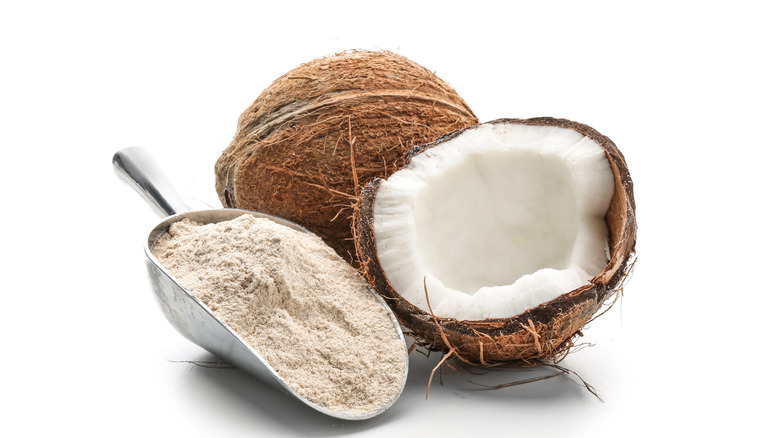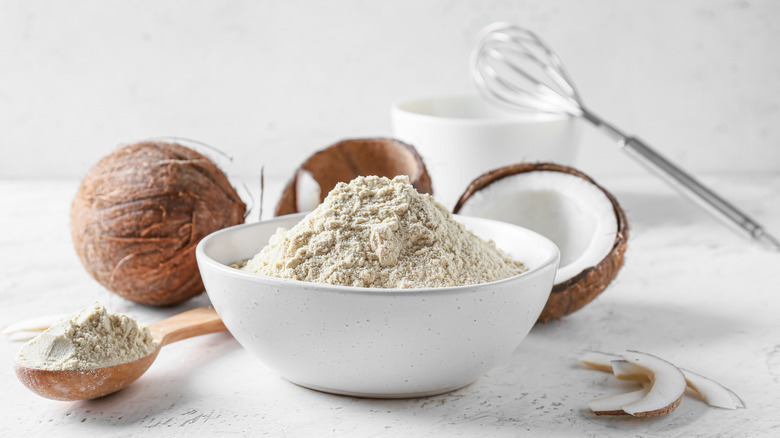What Are The Benefits Of Switching To Coconut Flour?
Made from dried and ground-up coconut meat, coconut flour is an all-natural ingredient and one of the most popular flour substitutes to use in baking right now. While there have been many studies on the health benefits of coconut itself, as well as other coconut-based products, like coconut oil and coconut water, you may wonder how the flour version compares. And, is it healthier than other flours?
The short answer is yes. If you compare wheat flour to coconut flour, you'll find it has more protein, fat, and fiber, making it an excellent way to bolster the nutritional value of baked goods (via WebMD). According to a 2003 study published in the British Journal of Nutrition, certain baked goods made of coconut flour had a lower glycemic impact on diabetic patients than multi-grain versions, making it more beneficial for those monitoring their blood sugar. But the health benefits don't stop there.
Why coconut flour is good for the body
Because coconut flour is high in fiber, it can help with digestive health, according to Healthline. The insoluble fiber content can promote regularity by adding bulk to stool. Additionally, it can help mitigate the risk of digestive tract health conditions like colon cancer. As for helping your gut bacteria, coconut flour also contains soluble fiber, which can be beneficial to gut bacteria. And another way coconut flour can promote gut health is due to the fact that it's gluten and grain-free. For many, these two substances can cause digestive upset and even allergic reactions.
In addition to gut health, coconut flour may be helpful for your heart (via Healthline). Specifically, studies have shown it decreases the risk of certain heart disease risk factors. This is possible due to the flour's ability to lower cholesterol and triglyceride levels. And if your blood pressure's a concern, coconut flour has actually been shown to promote healthy blood sugar levels due to its rich source of potassium.


